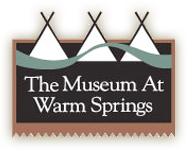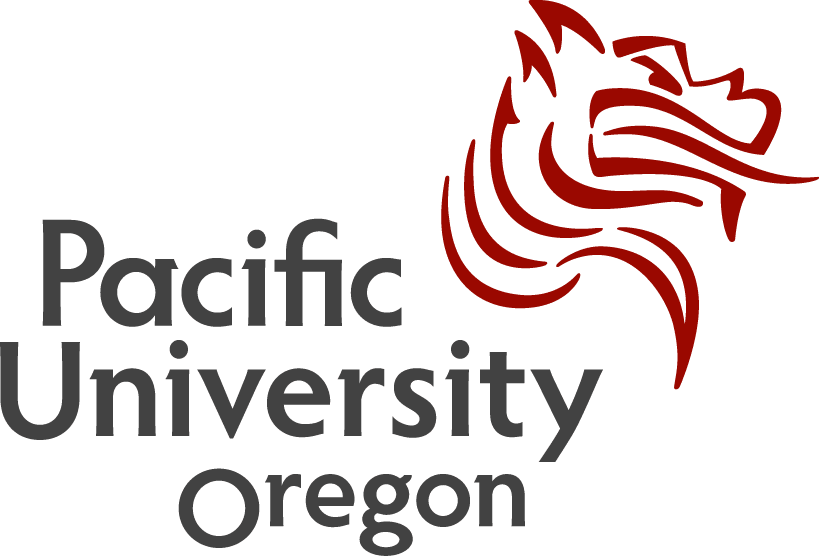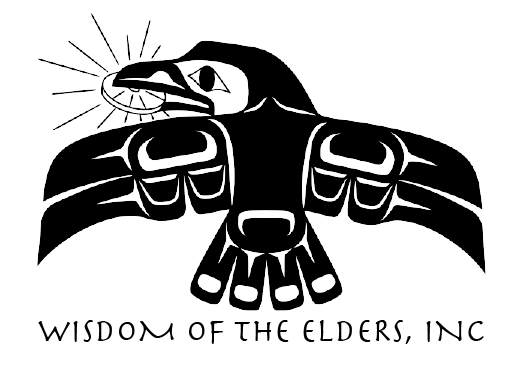

 Chachalu Museum and Cultural Center
Chachalu Museum and Cultural CenterChachalu tells the story of the Tribes and Bands of the Confederated Tribes of the Grand Ronde Community of Oregon and honor our Elders who kept Tribal traditions and dreams alive during the years of Termination. It is a center where the Tribe’s Restoration is celebrated and our culture is being revitalized. This vision of the Museum is to tell the story of the resiliency of the land and of the people who have lived here since time immemorial.
 The Museum at Warm Springs
The Museum at Warm SpringsVisitors to The Museum at Warm Springs will experience firsthand the sounds of ancient songs and languages, the mastery of traditional craftsmen and the sights of rich and colorful cultures that make up the Confederated Tribes of The Warm Springs Reservation of Oregon. For the first time, their histories and traditions are told in an exciting, permanent, interactive exhibit, bringing to life the fascinating story of the Tribes.
The collections of the museum are rotated throughout the year. So, when you visit you may see an entire new display in the gallery. In addition, the Museum’s archives boasts 2,500 photographs dating from the 1850’s to the present. The final component of the archive consists of important tribal documents and many books on a wide range of subjects on American Indian history, art and culture.
 National Museum of the American Indian
National Museum of the American IndianThe NMAI cares for one of the world's most expansive collections of Native artifacts, including objects, photographs, archives, and media covering the entire Western Hemisphere, from the Arctic Circle to Tierra del Fuego. The NMAI also hosts Native Knowledge 360° (NK360°), a resource that provides educators and students with new perspectives on Native American history and cultures
 NDNHistory Research
NDNHistory ResearchDavid G. Lewis is an Assistant Professor of Anthropology at OSU, and member of the Confederated Tribes of Grand Ronde. David conducts research about the tribes of Western Oregon and writes essays on various topics which are posted on this blog.
 Pacific University Indigenous History of Oregon
Pacific University Indigenous History of OregonThis site was compiled by Pacific University's archivist, and serves as an excellent compilation of information on the history of Oregon's native peoples, including information on Oregon's boarding schools.
 Southwest Oregon Research Project (SWORP) Collection
Southwest Oregon Research Project (SWORP) CollectionSWORP consists mainly of photocopies of widely scattered and overlooked original documents pertaining to the history of the Native peoples of greater Oregon. Many of these documents have been languishing in national repositories, particularly in Washington, D.C. SWORP aims to repatriate these materials to the Native American Tribes. Through the agency of Native Americans themselves, the archive and continuing project allows Native American and university scholars to continue to research and rewrite the histories of colonization that have been imposed upon Native peoples.
 Wisdom of the Elders, Inc
Wisdom of the Elders, IncWisdom records, preserves, and shares oral history, cultural arts, language concepts, and traditional ecological knowledge of exemplary Native American elders, storytellers, and scientists in collaboration with diverse institutions, agencies and organizations
 Native American Youth and Family (NAYA) Center
Native American Youth and Family (NAYA) CenterFounded by the community, for the community, NAYA is a family of numerous tribes and voices who are rooted in sustaining tradition and building cultural wealth. NAYA Family Center draws on the strengths of staff and volunteers to provide inclusive programming for Native Americans from infant to Elder.
The Native Wellness Institute exists to promote the well-being of Native people through programs and trainings that embrace the teachings and traditions of our ancestors.
Oregon Indian Education Association (OIEA) is made up of thirty-three elected board members throughout the state of Oregon, including Title VII Programs and the nine Federally Recognized tribes’ Education Departments. At the forefront of educational issues facing tribal people are the high number of student dropout rates, overrepresentation in special education, and underachievement in math and science areas. Although native educators have made strong strides in improving the education of AIANs, there remains a shortfall in the educational outcomes of AIAN students as compared to other ethnic groups.
 Oregon Native American Chamber
Oregon Native American ChamberThe Oregon Native American Chamber is a community of professionals, advisors, organizations, entrepreneurs, and companies collectively working toward success in business and community.
Established in 2006 by Dr. Debbie Reese of Nambé Pueblo, American Indians in Children's Literature (AICL) provides critical analysis of Indigenous peoples in children's and young adult books. Dr. Jean Mendoza joined AICL as a co-editor in 2016.
The Center for World Indigenous Studies has led the development of public policy and guided strategic implementation benefiting indigenous nations around the world since its founding in 1979.
The Center’s research and policy analysts have developed, advanced and promoted public policies to improve the effectiveness of nations’ governance and institutional responses to the changing social, economic, political and cultural environment.
First Nations Development Institute improves economic conditions for Native Americans through direct financial grants, technical assistance & training, and advocacy & policy.
 National Congress of American Indians
National Congress of American IndiansNCAI was established in 1944 in response to the termination and assimilation policies the US government forced upon tribal governments in contradiction of their treaty rights and status as sovereign nations. To this day, protecting these inherent and legal rights remains the primary focus of NCAI.
The National Indian Education Association (NIEA) was formed in 1969, in Minneapolis, Minnesota, by Native educators who were anxious to find solutions to improve the education system for Native children. The NIEA Convention was established to mark the beginning of a national forum for sharing and developing ideas, and influencing federal policy.
 Native American Heritage Month
Native American Heritage MonthThis Web portal is a collaborative project of the Library of Congress and the National Endowment for the Humanities, National Gallery of Art, National Park Service, Smithsonian Institution, United States Holocaust Memorial Museum and U.S. National Archives and Records Administration.
 Ask WOU Library
Ask WOU Library We're offline, but you can email us (libweb@wou.edu) and we'll get back to you as soon as we can. In the meantime, check our FAQ to see it the answer to your question is there.
We're offline, but you can email us (libweb@wou.edu) and we'll get back to you as soon as we can. In the meantime, check our FAQ to see it the answer to your question is there.